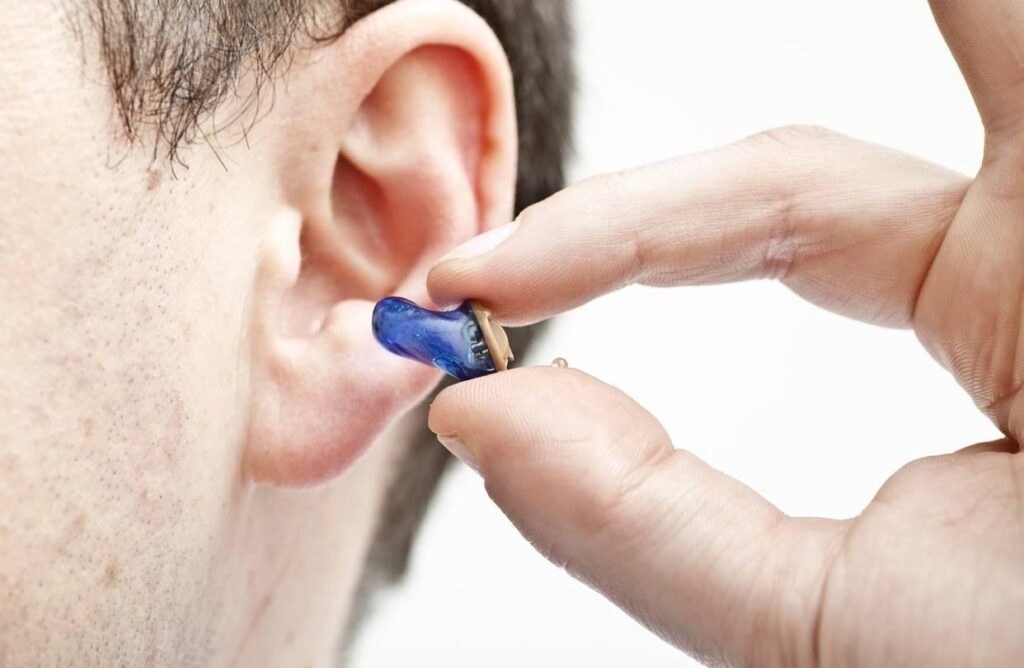If you are having challenges with your hearing and require aid, you would undoubtedly want to know the options available to you and how to use them.
Having hearing problems can take a toll on your life. It could be difficult to socialize with people, not to mention being attentive when talking to other people. And for this reason, you will surely need assistance. So if you require a hearing aid, you will find all the information you need below on how best to use one.
What is a Hearing Aid?
They are tiny electronic devices designed to be worn around on inside ear to help with improved hearing. It aims to assist people with difficulties registering sound waves and communicating with others. They include a speaker, microphone, and amplifier. The sound wave is filtered in through the microphone, while the amplifier increases the signal strength, which increases the reception in the ear through the speakers.
How to Use One
You want to start by getting in touch with your doctor (an audiologist) when you notice you have problems with your hearing. They are better equipped to enlighten you on how best to go about treatment. There are many reasons you can suffer hearing loss. Injury to the inner ear, disease, or complications from aging could be one of the reasons why you need help. The link here https://www.medicalnewstoday.com/articles/249285 has more on possible causes of hearing loss.
The first thing you want to get right is picking the proper aid. Most people would likely not know that indeed, not all options are designed for mass utilization. There are certain factors that you will have to decide on when selecting one for your use. I’ll talk more about that later on when I talk about picking a hearing aid.
When Would You Need a Hearing Aid?
You want to check with a physician who would direct you to an audiologist. That’s if you don’t know one, and they would assist you with diagnosing the likely cause of the problem. For severe damage to the ear, you may not be able to find aids that could provide enough amplification. In this case, a medical practitioner would be in the best position to advise you on the best alternative.
Certain disease conditions of the inner ear that affect the sensory cells could make it challenging to register sound waves. And like most infections of the body, there are treatment options available to you. One of them is by using a hearing aid.
Damage to the eardrum resulting from loud noises would also warrant a hearing aid to improve communication. Most people who need assistance with registering sound would likely have suffered damage to their eardrums, but the extent of damage is what determines the treatment to be administered. Making the right decision would begin by checking with your physician, so you want to be adequately guided.
Different Styles of Hearing Aids
There are many options available to you when it comes to picking the right solution for you. You can check here for more on how to select the right choice for you. While most options all feature the same essential parts, including the microphone, amplifier, and speakers, they differ from one another based on their design. This usually can be categorized based on the mode of attachment to the ear. The popular models include
BTE – Behind the Ear
These are a lot more commonly used for kids who may have difficulties with their hearing. It is designed to be worn behind the ear and perfect for mild to severe problems with registering sound waves. It features a hard plastic case worn behind the ear and linked to a plastic ear mold fitted directly to the outer air.
This helps to improve the sound reception that filters in through the amplifiers into the speakers. These types attach firmly to the ear and, as such, are easier to assist with hearing. This is since the speakers are directly situated behind the ear, making it easier to register sound waves.
ITE – In the Ear
Another popular option you will find in the market are those worn directly inside the outer ear. These are also great for mild to severe sound reception problems. Naturally, most people would agree that it is uncomfortable leaving the device in the ear for an extended period. But the latest designs for the ITE are more comfortable inside the outer ear and are lightweight too, so you could barely feel their presence in your ear.
Most of the ITE options include additional features added to the microphones, amplifiers, and speakers. And these could consist of a magnetic coil that helps with better reception when using the device. For most people, the BTE options often may not provide the right reception, especially when you have issues with the fitting. The ITE is best for adults as kids would continue to experience ear growth, affecting the fitting.
Canal Aids
These are designed to be fitted directly into the ear canal. You can find them either as one that fits into the ear canal’s shape and size or nearly entirely hidden inside the canal. They are alright for mild to severe problems with sound reception, but they may not be ideal also for kids.
How to Choose the Right Hearing Aids?
You will have to check with a registered and trained audiologist who will help determine the best possible solution to the issue. This will help to prevent hearing aid feedback, which could be caused by improper fitting. When it comes to selecting the right hearing aids, there are a few things you want to consider, and they include
Fitting
You want to get something that fits easily inside the ear and doesn’t leave you with any discomfort when you put it on. So you want to have your doctor help with checking the measurements to ensure the device sits in properly when attached outside or inside the ear.
Analog/Digital
Another important thing you want to settle on is whether to go for analog or digital options. While they are both great at improving sound reception, they certainly differ in their user experience. Analog devices convert the sound waves into electrical utilizing the device circuitry.
Simultaneously, the digital options make use of alphanumeric codes likened to that of the computer to register sound waves in the ear. It would help if you discussed it with your doctor to decide on the best alternative for you.
Final Note
Getting the right assistance with your ear problems is crucial if you want to protect your hearing. So you want to check with your physician if you notice any such issues registering sound waves.
Resources: Chosgo Hearing



